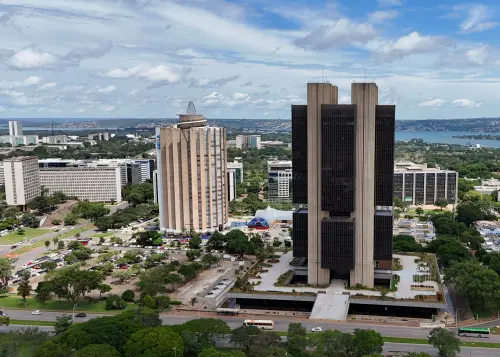Brazil's central bank raised interest rates by 100 basis points for the third consecutive time, adhering to its previous guidance while signaling a smaller hike at its next policy meeting as it monitors signs of an economic slowdown.
The bank's rate-setting committee, known as Copom, increased the benchmark Selic rate to 14.25%, a level not seen since 2016, in a unanimous decision, aligning with the expectations of all 37 economists surveyed.
"The Committee anticipates an adjustment of lower magnitude in the next meeting, if the scenario evolves as expected," policymakers stated in their announcement.
In addition to the expected rate hike, markets were closely watching the central bank's communication regarding its next steps, now under the leadership of Gabriel Galipolo.
Galipolo, a close ally of President Luiz Inacio Lula da Silva, assumed the role in January, succeeding Roberto Campos Neto, who faced criticism from the leftist leader.
Under Galipolo's leadership, the central bank has followed the guidance set by Campos Neto, which had outlined a 200 basis point tightening in the first quarter of this year.
Attention has now shifted to Galipolo's signals about achieving the inflation target, as Lula faces low approval ratings and ramps up efforts to boost consumption, creating tension with the central bank's mandate to cool economic activity.
The central bank's decision coincided with the U.S. Federal Reserve's assessment of new policies from the Brazilian administration before potentially lowering borrowing costs.
Despite the Brazilian currency strengthening by more than 9% against the U.S. dollar this year, longer-term inflation expectations have deteriorated, raising concerns about the movement toward the 3% official target.
While Brazil's economic activity showed unexpected growth last quarter, early data for this year indicated some resilience, as noted by central bank officials.
"The set of indicators on economic activity and the labor market has demonstrated strength, even though we observe signs suggesting an incipient moderation in growth," Copom stated in its policy announcement.
Reflecting updated economic conditions, the central bank lowered its 2025 inflation forecast to 5.1% from the 5.2% projected in January. For the third quarter of 2026, influenced by current monetary policy decisions, it now expects 12-month inflation of 3.9%, down from a previous estimate of 4.0%.
